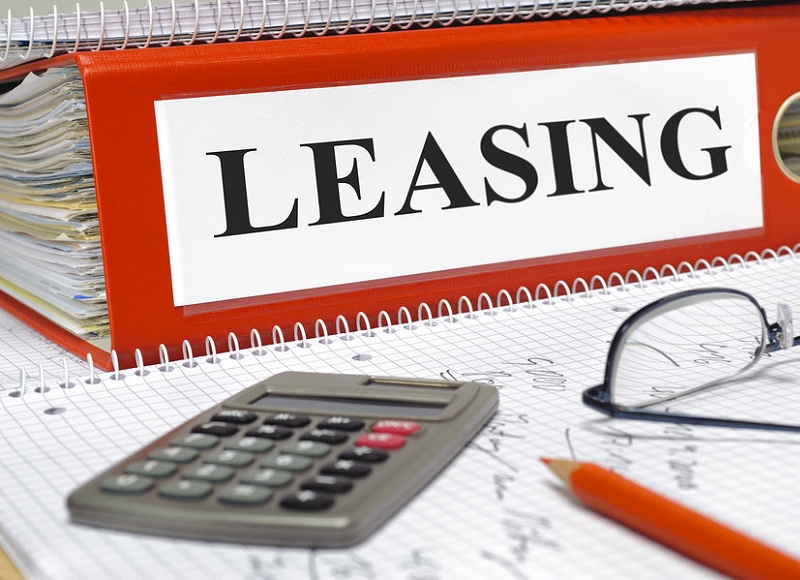Industry Report 2018: Financial Leasing in Cambodia

Cambodia is becoming relatively more consumption-oriented society, as the income level has risen on the back of strong economic growth over the past few decades. According to the Cambodia Socio-Economic Survey (CSES) 2016 released by the National Institute of Statics (NIS), total household consumption increased on average 13.2% per year between 2012-2016, standing at $18.7bn or 91.6% of the GDP in 2016. The increase in consumption expenditure is reflected in rising demand for not only foods on which a large percentage of the spending is used, but also other lifestyle-changing durable products such as motorcycles, cars, flat-screen televisions, refrigerators, washing machines, smart phones and other consumer durables.
Rising demand for durable products comes not only from individual consumers, but also from micro-, small- and medium-sized enterprises (MSMEs) which have grown in tandem with the country’s economic expansion. Cambodian Inter-censal Economic Survey (CIES) reported a notable increase in the number of MSMEs from about 376 thousand establishments in 2009 to about 513 thousand establishments in 2014. These business entities are in high demand for vehicle fleets, industrial machineries, agricultural machineries, and other equipment that are necessary for their business operation, but they often lack the financial resources to pursue such an expansion plan. With financial inclusion improving considerably, they are now able to take loans from banks or microfinance institutions to finance such a purchase.However, while the income level is rapidly growing with nominal GDP per capita rising from USD945 in 2012 to USD1,278 in 2016, in terms of absolute value it is still at a low base, and requires Cambodian consumers to look for some ways to convert their future income stream into present consumption if they wish to fulfill their continuously growing demand. Though there are a number of options to achieve this, usually they may first want to borrow money from friends or relatives. However, the amount available for this kind of external financing can sometimes be very limited, and such a practice could spoil consumers who may then have a tendency to delay or default on payments, leading to a dispute that may eventually jeopardize their relationship with the people around. Besides looking to nearby people for financing, Cambodian consumers may also borrow from money-lending NGOs, pawnshops, and other illegal money lenders. Nevertheless, this financing method was not really a significant driving force behind the recent rise in consumer credit in Cambodia, as ultra-high interest rates are often charged by these types of moneylenders and so often restraint consumers from fully utilizing the external financing option. Rather than the availability of informal financing sources, it was the emergence of the formal financial sector—with regulated banks and microfinance institutions flourishing across the country—that enables more and more consumers to pursue their current consumption appetite. CSES 2016 data in Figure 1show an upward trend in the percentage of borrowings for the purpose of purchasing consumer durables. With the figure standing at 9.9% of total loan outstanding as of 2014, the trend can be expected to continue.
In addition to bank or microfinance loans, there is a swifter and more convenient way that allows individual consumers to convert future income stream into present consumption and permits MSMEs to finance their operational movable assets while reducing the requirements for cash outflow. A financial lease allows individual consumers and businesses to achieve such a purpose. It is an agreement tied to a purchased product between two parties: one who finance the purchase of the product (called a lessor), and the other one who is the real purchaser and user of the product (called a lessee), with the ownership remaining with the former. The term of the lease agreement usually require the lessee to commit to a schedule of payments to the lessor, and depending on the agreement, the ownership may be transferred to the lessee when full payments are made and the term of the lease ends.
There are some key benefits of a financial lease compared to a bank or microfinance loan. First, since the ownership of the product remains with the lessor during its term, it is not always necessary to have any collaterals to secure the lease agreement, although additional guarantees can be arranged. The lessor may sell the product upon default of the lessee under the lease agreement without having to go to court. In addition, processing an application for a financial lease may be quicker and may result in lower transaction costs than traditional bank or microfinance loan, since a loan application involves extensive documents that need to be submitted by borrowers. For instant, Elin Leasing, the only leasing company that is specialized in mobile-phone lease, claims to spend only one hour to process a leasing application online. This is made possible as the lessor is the one who has ownership rights of the product.
With related regulation just in place about five years ago, financial leasing business in Cambodia has yet to be fully developed, and so could hold great potential for growth similar to what microfinance was like 10~15 years ago. The leasing business could prove to be as fast-growing and lucrative as the micro-loan business, as is evidenced by appearance of leasing companies, which have entered into the market one after another over the last five years.
Although it seems to be a good investment opportunity, not much is known about this sector. For this purpose, the research report is aimed to offer an in-depth study on the leasing business activities in Cambodia, bringing to light what would be the opportunities and risks involved if investment decision has to be made. The information and data given in this report are based on various available sources deemed reliable. YSC also gathered information from a number of leasing companies through interview with their top managements and/or shareholders.
